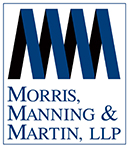Flashpoint
FAQs
Startup Engineering is a program and framework for finding genuine unmet demand and building scalable companies to satisfy it.

Startup engineers work to identify and build not just products that their customers want, but products they cannot not buy. A truly disruptive new product is like a better path or shortcut that customers automatically move to because it becomes the best way to get where they’re going. Flashpoint has applied research from behavioral economics - the science of how people make judgments - and from related areas to help founders reveal the biases, assumptions, and the situational paths that their customers take, and to use these insights to build products their customers authentically demand. Flashpoint@Georgia Tech combines training in startup engineering concepts and techniques, support in using those techniques, and a high level of individualized mentorship. Working with Flashpoint, founders generate theories about customers and their situations. They work toward actionable truth by testing to disconfirm their theories about customers, modifying them, and retesting. Startup engineers think more clearly about their customers and their business.
Startup Engineering is a program and framework for finding genuine unmet demand and building scalable companies to satisfy it.

We on-boarded Cohort 8 in August 2017. Please, contact us to find out when we start accepting applications for the next cohort.
It’s more. Flashpoint helps founders manage their startups though a unique program that accelerates the process of finding authentic demand and building a company around it. Alumni and investors say that the Flashpoint program compresses more than a year of work into a short cohort, and often enables startups to move fast enough to avoid a round of funding.
Startup Engineering is the process we use to build startups. You can find information about the process here or watch our Director describe it in a recent lecture here.
Common attributes: Many teams apply. Flashpoint filters and accepts about a dozen startups into every cohort. Each team receives a $20k investment from our associated investment fund. We connect teams with Flashpoint mentors and alumni who have expertise to offer the startups. The Flashpoint community has dinner together at special Tuesday night gatherings where teams present and Flashpoint alumni hang out with speakers who often fly in from the Bay Area, Boston or NYC. Teams work in a great shared space in Tech Square. Each Flashpoint cohort runs four months and we run two cohorts a year. At the end of each cohort, there are demo days for investors in Atlanta, NYC, and San Francisco.
Welcome. Nearly all Flashpoint founders have led startups before, and many of them have multiple, successful exits. Here’s one Flashpoint founder’s perspective: “I’ve built enough successful companies and divisions of companies to know something. At Flashpoint I learned to think and understand things in a new way. It’s changed how we’re building our current company and how I’ll build companies in the future.” (Kurt Uhlir)
Yes. Many active angel investors and venture firms with early-stage interests are looking to work with Flashpoint teams.
In the fall of 2010, Georgia Tech Executive Vice President for Research Dr. Stephen E. Cross created an innovation task force to support the institution’s strategic plan. This task force was led by Associate Vice President for Research Dr. Ravi Bellamkonda, and College of Computing Distinguished Professor Dr. Merrick Furst. Flashpoint was one of the task force’s recommendations to foster entrepreneurship and innovation. Flashpoint still maintains close ties with Georgia Tech, but as the program developed and fostered successful companies, Dr. Furst and San Francisco investor Matt Chanoff spun it off as an independent company. As of 2016, over 150 founders have gone through the Flashpoint program, and companies originated at Flashpoint have a market value of approximately $1.2 billion.
Since the program began in 2012, Flashpoint has developed a strong reputation for producing successful startups. Its companies have attracted more than 150 MM in commitments from angels and investors, including Moseley Ventures, TechOperators, ff Venture Capital, Kleiner Perkins, Google Ventures, Andreesen Horowitz, Sigma Prime, New World Ventures, and Meritech Capital Partners.
Merrick Furst is the founder and director of Flashpoint. As the first Distinguished Professor at the College of Computing, Merrick developed the highly regarded Threads curriculum. Merrick is also the co-founder of internet security firm Damballa. Merrick was the founder and CEO of Essential Surfing Gear, a SF-based technology company acquired in 2001. Merrick was also president and director of the International Computer Science Institute at University of California at Berkeley
We need founders to be committed full-time to their startups and to have strong working relationships. The startup engineering work requires teams to have significant domain knowledge and to have relevant technical expertise. We look for people who are demonstrably motivated to create scalable businesses. All things equal, we’d choose to work with exceptionally intelligent founders who are open in their thought processes, stable in temperament, conscientious in their ways, and relentlessly resourceful.
We have a preference for teams of two or more. The startup engineering process represents a lot of work – it moves faster when you have a partner to share the load. It also requires a tremendous amount of self-reflection and change. This is easier when you have another person to help hold you accountable. That said, we have worked with solo founders in the past.
No.
Yes. It is a full-time commitment and founders are expected to be present at Flashpoint during all required weekly sessions.
Yes. There is a great deal of value placed on sharing knowledge and experience with other teams.
No. If you have a company, that is fine. If not, we will help you out.
Sure.
No. We do not read business plans. Nobody does anymore. Not at this stage.
Pick the one you like best. Experience tells us to be somewhat less interested in your idea than in your team.
Yes. Startup engineering practices and the Flashpoint program can help any startup.
Talk to us. The key is being able to get far enough along during the program to be of interest to later stage investors.
We do not sign NDAs. Our ability to operate depends on our integrity, so we guard it carefully. More important, ideas are not very valuable in themselves. People and execution matters. As far as we can tell, no one wants to get rich on your great idea, because they want to get rich on their dumb one. And, they see the situation in reverse.
Flashpoint can solve your corporate innovation problem. Ask us how.

Merrick is the founder of Georgia Tech’s Flashpoint, a first-of-its-kind startup engineering studio that develops and produces exceptional technology startup companies. He is Georgia Institute of Technology’s first “distinguished professor of computing”.
The GT “Threads” program in the College of Computing was his creation, and he is one of the three producers of The InVenture Prize, a live-broadcast tv show that NPR describes as American Idol for Nerds. Merrick is a co-founder of the internet security firm Damballa and is an early-stage fund investor.
Prior to joining Georgia Tech, Merrick was the founder and CEO of Essential Surfing Gear, an internet software company, which was acquired in 2000. At the University of California at Berkeley he served as president and director of the International Computer Science Institute, and he established its Center for Internet Research. Prior to Berkeley, Merrick was a professor and associate dean in the School of Computer Science at Carnegie Mellon University.
Merrick is an inventor, recipient of the first Presidential Young Investigator Award in computer science, and early creator electronic post-it notes, which were best-sellers on PCs.






If you have any questions about Flashpoint, send us a message.